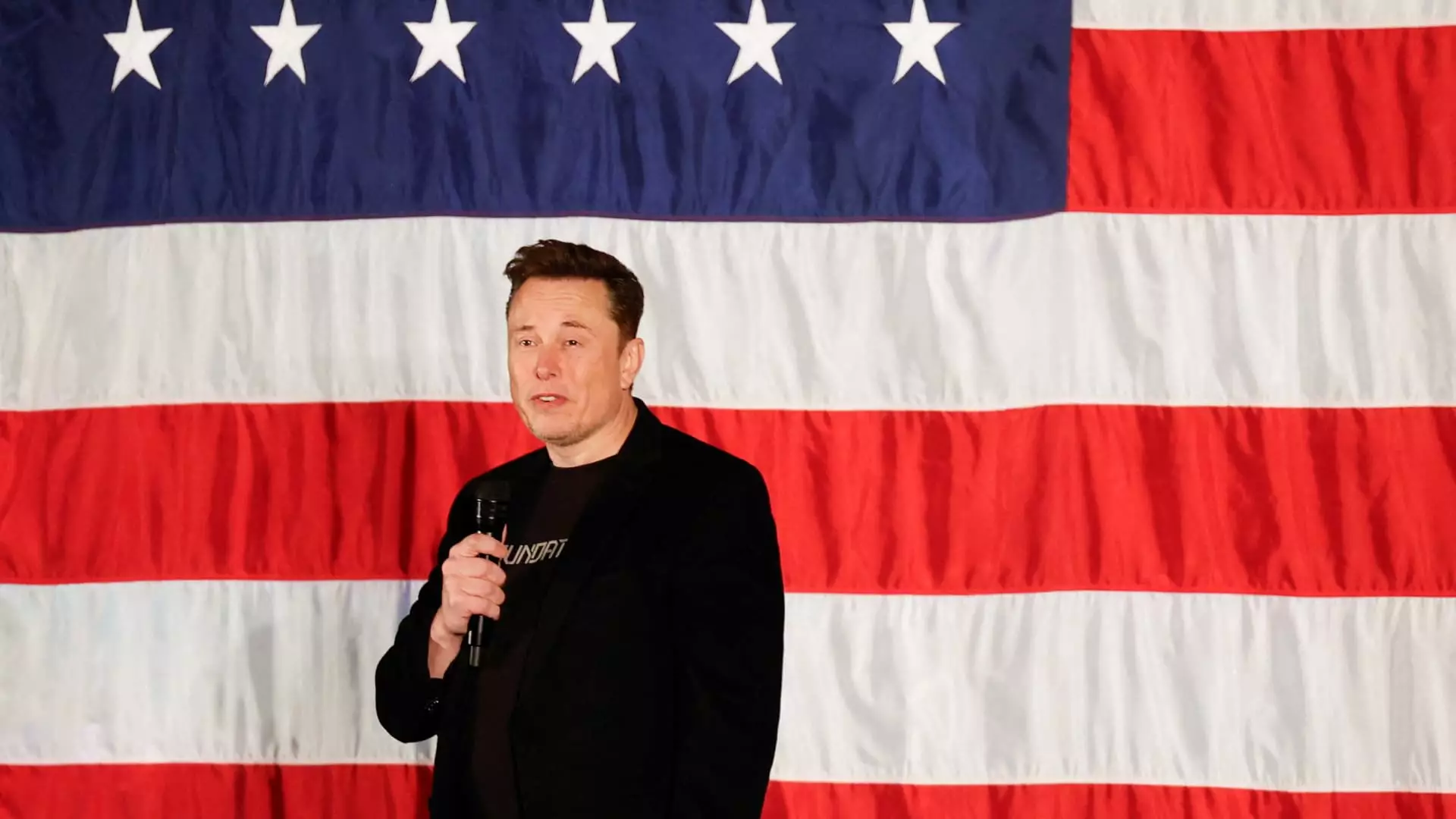A recent judicial decision in Pennsylvania has escalated tensions surrounding a $1 million lottery initiative orchestrated by billionaire Elon Musk and his political action committee (PAC). The case, which initially drew attention due to its impropriety during an election season, has raised critical questions about legality, the influence of wealth in politics, and the boundaries of voter engagement. On a Friday in October, a federal judge mandated the return of the lawsuit to state court, setting off a chain of reactions and legal maneuvers aimed at either halting or legitimizing the PAC’s audacious giveaway to registered voters.
Philadelphia District Attorney Larry Krasner is at the forefront of the challenge, accusing Musk and his America PAC of perpetuating an illegal lottery while attempting to manipulate voters ahead of the presidential election between Donald Trump and Kamala Harris. The contention lies not only in the legality of the $1 million lottery but also in allegations of violations against state consumer protection laws. Krasner’s assertion posits that at its core, the lottery fundamentally undermines the electoral process, positioning Musk as a financial influencer rather than a mere participant in democratic engagement.
U.S. District Judge Gerald Pappert dismissed arguments from Musk’s legal team that sought to keep the case within the federal court system, emphasizing that the origins of the claims relied firmly on state law. In his ruling, Pappert pointed out the absence of any pertinent federal issues that warranted the case’s retention in a higher court. This decision elucidates the inherent challenges faced by those attempting to navigate legal frameworks straddling both state and federal jurisdictions.
Following the judge’s ruling, Krasner’s office expressed satisfaction, framing the decision as a victory in their argument against the America PAC’s strategic attempt to shift legal responsibility to federal court. “This ruling is consistent with our view that the eleventh-hour maneuvering to remove the case from state jurisdiction was contrary to the law,” stated the office. With the case now scheduled for reassessment in the Court of Common Pleas, Krasner’s team eagerly anticipates a hearing on their emergency request, beckoning quicker resolution regarding the lottery’s future.
John Summers, representing Krasner’s office, conveyed that they remain poised for the state’s next steps, aimed at bringing the unexpected lottery to a swift cessation should the court agree. What remains at stake is not merely the legality of this giveaway but the potential ramifications for electoral integrity in a crucial swing state.
Musk initiated I’s ambitious lottery project on October 19, announcing a plan to randomly award $1 million every day until the upcoming Election Day to registered voters in seven pivotal swing states, including Pennsylvania. Those eligible must sign a petition affirming their support for the U.S. Constitution, a questionable requirement that raises additional ethical concerns about commodifying civic participation.
The peculiar nature of Musk’s campaign strategy unfolds further with the knowledge that the first three prize winners originated from Pennsylvania. This regional focus accentuated suspicions regarding the underlying motivations behind the lottery, underscoring potential efforts to secure voter allegiance to the Trump campaign, which Musk supports.
During this tumultuous timeline, a critical moment arose when Musk failed to attend an emergency hearing in the Court of Common Pleas. The sudden withdrawal of the case to federal court led to judicial complications, with delays in addressing the core issues raised by Krasner’s office.
The legal battle surrounding Musk’s lottery serves as a microcosm of the broader challenges faced by election systems in an era defined by unprecedented financial resources and the complex intersection of politics and legality. As the case returns to state jurisdiction, the implications for politicians, voters, and future campaign initiatives are profound.
A verdict in this matter could echo beyond Pennsylvania, influencing how wealthy figures engage in political discourse and shaping the narrative around voter incentives in upcoming elections. As the case evolves, all eyes will be on how the legal outcomes affect not only Musk and his PAC but the perception of democracy in a time when corporate influences loom large.


Leave a Reply